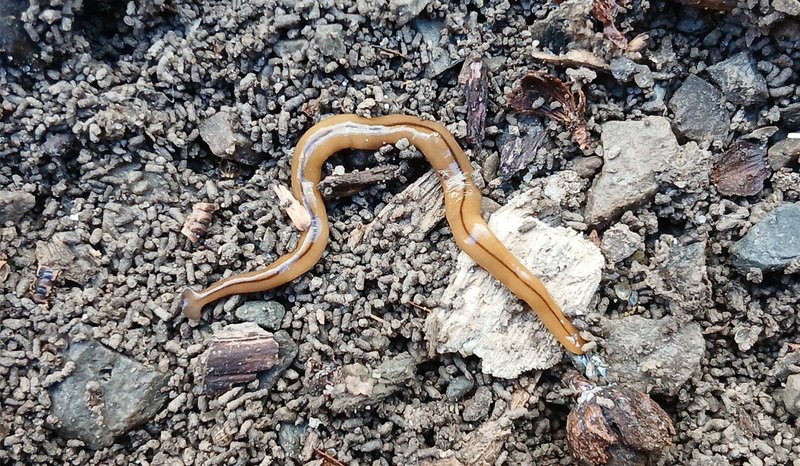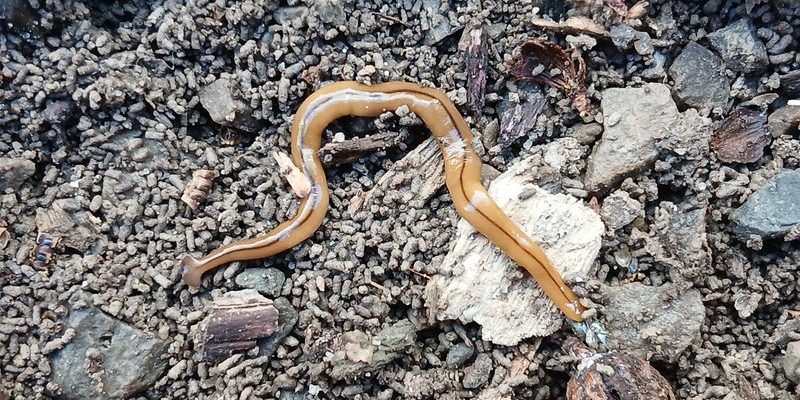
Imagine the soil in your garden as a bustling city, where everything needs to coexist peacefully. The hammerhead worm, while fascinating, can disrupt this fragile balance, especially since they feast on beneficial earthworms and other soil-dwelling critters. That’s where natural predators come into play. They act like the city’s police force, keeping the hammerhead worm population down and ensuring the ecosystem remains healthy and vibrant. So, who are these heroes of the soil? Let’s explore the natural predators that help control hammerhead worms.
What Are Hammerhead Worms?
Before we dive into their natural predators, it’s essential to know what we’re up against. Hammerhead worms, scientifically known as *Bipalium*, are flatworms that can grow quite large. Some species can reach up to 24 inches long! They have a distinctive flattened body with a wide head that resembles a hammer.
These worms are carnivorous, primarily preying on earthworms, which are vital for soil fertility. When hammerhead worms invade gardens, they can upset the natural balance, leading to fewer earthworms and poorer soil health. They reproduce quickly, too, which makes controlling their population all the more critical.
You might wonder what attracts hammerhead worms to your garden in the first place. Moist environments are their favorite hangout spots, so if you have a damp garden, you might be a magnet for these pests.
Introducing Nematodes
One of the most effective natural predators of hammerhead worms are nematodes. These microscopic roundworms are often referred to as “the invisible enemy” due to their small size. But don’t let their size fool you; they play a crucial role in pest control.
Nematodes are found in healthy soil and can target various pests, including hammerhead worms. They infiltrate these flatworms, eventually leading to their demise. When you introduce beneficial nematodes into your garden, it’s like sending in a special task force to deal with the hammerhead worm problem.
Nematodes thrive in moist environments, making your garden an ideal home for them. Plus, they’re harmless to plants and humans, so you can use them with confidence. You might have to give it a little time, but soon, you’ll notice a decrease in the hammerhead worm population.
Birds: Nature’s Pest Controllers
Let’s not forget about our feathered friends! Birds are some of the most notable natural predators of hammerhead worms. Many species, like robins and sparrows, have a diverse diet that includes earthworms and, yes, even hammerhead worms.
When birds spot these flatworms slithering on the ground, they quickly swoop in for a tasty snack. Think of birds as the aerial hunters of the garden, keeping the hammerhead population in check while adding beauty and life to your outside space.
Encouraging birds to visit your garden can also help control other pests. You can attract them by placing bird feeders, providing nesting boxes, or even planting native trees and shrubs. The more inviting your garden, the more birds will stop by to help with pest control.
Frogs and Toads: Slimy Friends with a Purpose
Frogs and toads might not be the first creatures that come to mind when thinking about natural pest control, but they’re surprisingly effective. These amphibians are opportunistic feeders, meaning they’ll eat whatever they can catch. This often includes hammerhead worms.
Having a healthy frog and toad population in your garden can significantly reduce the number of hammerhead worms. Their slimy skin and unique croaking sounds add a charming touch to any garden, and they help create a more balanced ecosystem.
To attract frogs and toads, consider creating a small water feature like a pond or a shallow dish of water. They love to soak in moisture, especially on hot days. Just remember that maintaining a clean water source is crucial to keep these little buddies happy.
Other Invertebrate Predators
While nematodes, birds, and amphibians are major players, several other invertebrates also prey on hammerhead worms. Certain beetles and spiders have shown a taste for them, adding another layer of biological control in the garden.
For instance, ground beetles are voracious predators of various soil pests. They tend to hunt at night, making them stealthy allies. If your garden attracts these beneficial beetles, they can help reduce the hammerhead worm problem without any extra effort on your part.
Similarly, spiders can capture and eat hammerhead worms, although they may not be as effective as other predators. Still, having a diverse range of invertebrates in your garden supports a balanced ecosystem.
The Importance of Biodiversity
Supporting natural predators like nematodes, birds, frogs, and beetles is about more than just keeping hammerhead worms in check. A diverse ecosystem is healthy and resilient, enabling your garden to thrive even under pest pressure. Biodiversity leads to better soil health, plant growth, and overall garden vitality.
When you think about pest management, remember that chemical solutions can often cause more harm than good. By promoting natural predators, you’re investing in a sustainable solution. You can maintain a thriving garden while letting nature do what it does best.
Consider planting a variety of flowers and native plants that attract beneficial insects and birds. The more diversity in your garden, the more natural pest control options you’ll have at your disposal.
When it comes to hammerhead worms, managing their population the natural way is not only effective but also enriches your garden’s ecosystem. From microscopic nematodes to friendly frogs, many creatures play a role in keeping these pests in check.
Embracing nature’s balance means creating a welcoming environment for these allies. Consider the steps you can take to encourage them in your garden. A few small changes can lead to a healthier and more vibrant space filled with life.
So next time you spot a hammerhead worm, remember that you’re not alone in this battle. With the right natural predators on your side, you can maintain a beautiful, thriving garden that’s in harmony with nature.

